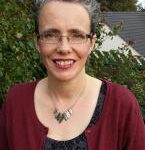As we enter into Holy Week I find the scriptures of this Lenten season echoing within me. They are words of love and liberation. From the first week of Lent we are urged to love our neighbour as ourselves. Relationship with God is never just a ‘me and you’ affair. It is always lived out in the context of the community.
In the second week Isaiah calls upon us: “Cease to do evil. Learn to do good, search for justice, help the oppressed, be just to the orphan, plead for the widow.” Moreover, Isaiah reminds us that it is within such a context that we can expect forgiveness for our own sins.
Consistently throughout Lent we are called, as a people, into relationship with God. Jeremiah finds himself ordered to speak God’s word: “Listen to my voice, then I will be your God and you shall be my people.” Consistently we are reminded that that relationship has social implications.
I wonder sometimes is that where Judas fell apart. Was he quite content to be associated with Jesus when everything was going well, the crowds loved him, the miracles were flowing? Did he feel good, enjoying being associated with Jesus, sharing the glow?
But as Jesus travels towards Jerusalem it becomes more apparent that he is walking into danger. The message of love and liberation, the kingdom of God, has now become something that threatens Jesus’ life and, by association, the lives of those around him. Judas has been in it for the good times – but this? This is more than he bargained for.
So, as we enter into this most holy week of the Church’s year I find myself wondering how much I am prepared to risk for faith. How does faith shape me, shape us as a family? Being off the coffee or missing my glass of wine is all very well but there has to be more.
Isaiah is clear when he says: “Hanging your head like a reed, lying down on sackcloth and ashes? Is that what you call fasting, a day acceptable to the Lord? Is not this the sort of fast that pleases me – it is the Lord who speaks – to break unjust fetters and undo the thongs of the yoke, to let the oppressed go free, and break every yoke, to share your bread with the hungry, and shelter the homeless poor, to clothe the man you see to be naked and not turn from your own kin?”
Our relationship with God is lived out in loving, liberating, transforming action within our own families, our communities and our world. And part of me wonders how do I deal with all of that? It can feel overwhelming. There is so much brokenness in our world. Where do I begin?
If Isaiah was living now, who would he be gathering up and asking us to respond to? I think of the child within the womb, in a more dangerous position now than she has ever been before in Ireland. I think of the refugees coming to live amongst us, their lives ravaged by the experience of war. I think of the homeless on our own streets and families who struggle to cope day to day. People live on the margins – of our families, our communities, our world.
If what we are going to celebrate liturgically this week has any meaning at all then we as Christians need to take those words of love, liberation, transformation and – ultimately – resurrection and make them real in the world we live in.
It is a conversation for round the kitchen table perhaps – what does this Holy Week ask of us as a family and as a society? The next question is how we put that into action.


 Bairbre Cahill
Bairbre Cahill
